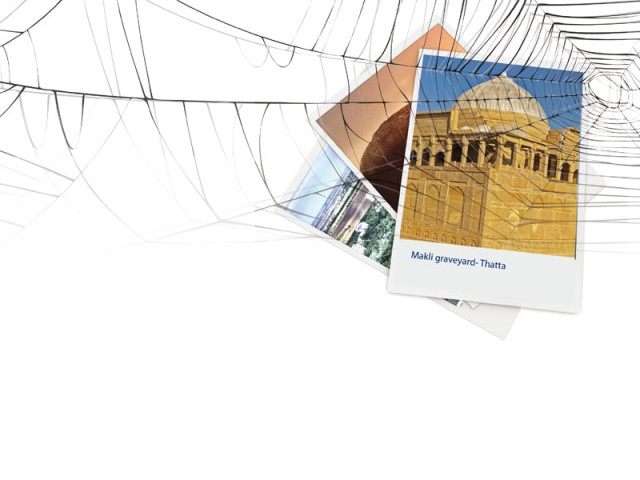Abysmal state of tourism: The ruins stand empty
Why are tourists not flocking to Sindh’s many rich heritage sites?.

Why are tourists not flocking to Sindh’s many rich heritage sites?.
A Sindh’s Directorate of Tourist Services senior official is much agitated with the state of affairs in the province’s tourism sector.
“From top to bottom, no one is interested in promoting tourism. Everyone has his or her own vested interest,” he says, wishing to remain anonymous. “Believe it or not, we are still getting Rs100 per month as traveling expenses. The amount has not been increased since the 1970s, when Zulfikar Ali Bhutto created the department.”
According to him, there are only two tour guides allotted for the entire province, while just four officials are charged with the task of inspecting the hotels, travel agencies and restaurants. He and his 16 other colleagues seem to be collecting salaries just for killing time, he says.
A rich history ignored
The official’s frustration seems well founded. While tourism is a globally respected industry, one that many countries are solely dependent on, the state of affairs is pathetic in Sindh, a province that is fortunate enough to boast numerous sites of immense potential.
These include Mohenjodaro, the Makli graveyard, Kirthar mountain ranges, Kirthar National Park, Karoonjhar Mountains in Tharparkar, the Keenjhar, Manchar and Haleji lakes, Bhambore, Rani Kot Fort, and Kot Diji, to name a few.
Almost all these sites are deserted. They sorely lack the basic infrastructure to invite tourists – proper roads, accommodation, travel arrangement, and even tour guides.
Empty promises
Each successive government speaks volumes about conservation of heritage sites but no concrete steps have been taken. According to Syed Hakim Shah Bukhari, former director of the archeology department, there’s not even a watchman at a lot of the heritage sites.
“The Makli necropolis provides a unique view of civilisation but most of the surrounding houses are built with bricks and stone, which is tragic. There is no watchman there, and the same situation prevails in other historical places,” he says.
The Gorakh Hill Station project, the highest peak of Sindh, is still in the doldrums because a mere five kilometre road cannot be built.
“The people of Balochistan have constructed the link road from the Khuzdar district to Gorakh, but, in Sindh, we have only seen tenders being awarded by the provincial government to various contractors,” rues Bukhari.
Unofficial operations
According to the law, no one can launch a travel, open up a restaurant or operate a hotel without the tourism department’s permission. However, of the thousands operating in the province, only 400 hotels and 600 restaurants are registered.
Manzoor Marri, the assistant controller at the directorate, says thousands of cases are pending with the department against those working without registration, but they have no power to take action against them.
What’s to come?
There are various departments and authorities working for the promotion of tourism in Sindh. These include, but are not limited to, the Sindh Tourism Development Corporation, Gorakh Hill Development Authority, Pakistan Institute of Tourism and Hotel Management, and the Department of Archaeology and Antiquities.
They are all interlinked for conservation and promotion of historical sites, and fall under the domain of the Ministry of Culture and Tourism. Their portfolios are with Chief Minister Syed Qaim Ali Shah.
According to Saeed Awan, the CM’s secretary, the provincial government will revamp the tourism department in the next few months.
“The directorate of tourism was under the control of federal government but has now been devolved to us. We are going to set up divisional directorates and appoint staff in every district,” he says confidently.
Responding to Gorakh Hill project, he says that a motel was developed and the road to the top of the hill built, but the 2010 floods washed it away. It is now being rebuilt.
Despite the promises, Awan warns against expecting overnight miracles.
“Sindh’s government took over most of the sites just two to three years back. Development takes time,” he says. “However, we realize that a Rs100 monthly allowance for officers in the tourism department is wrong. Therefore, we are considering revising it, and a summary will be moved to the chief minister soon.”
Published in The Express Tribune, November 21st, 2013.



















COMMENTS
Comments are moderated and generally will be posted if they are on-topic and not abusive.
For more information, please see our Comments FAQ